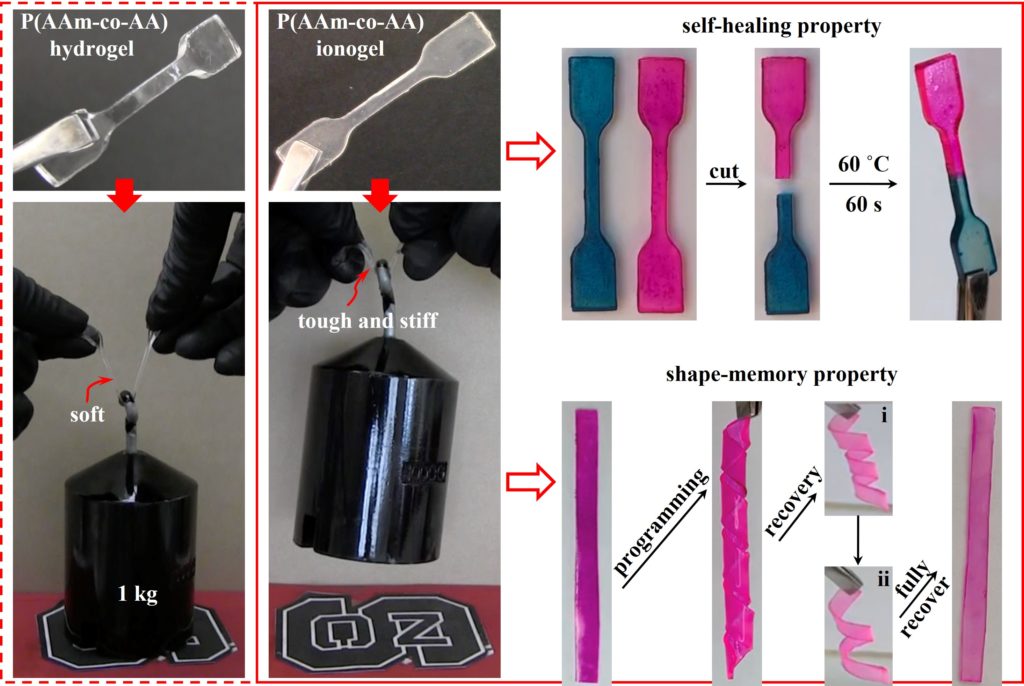
Researchers at North Carolina State University have made new materials that are not only extremely stretchable, they’re equally tough. The new materials fall under the broader category of ionogels—polymer networks, which contain salts that are liquid at room temperature, called ionic liquids.
“Materials that can be deformed, but that are difficult to break or tear, are desirable,” says Prof. Michael Dickey, co-corresponding author of a paper on the work. “Nature is good at this; think of cartilage as an example. But engineering synthetic materials with these properties has been difficult, which makes our work here exciting.”
Dickey and his collaborators have succeeded at making ionogels that are nearly 70 percent liquid and can dissipate a lot of energy when deformed, making them very difficult to break. The ionogels created by Dickey’s team also have self-healing and shape memory properties, are easy to make, easy to process and can be 3D printed.
“Hydrogels, which are polymer networks that contain water, are fairly common,” Dickey says. “For example, contact lenses are hydrogels. But ionogels have some advantages over hydrogels. Ionic liquids don’t evaporate like water, so you don’t have to worry about the ionogels drying out. Ionogels are also electrically and thermally stable and conduct electricity well, raising some interesting opportunities for future applications. We’re already working with one industry partner and are open to working with others to develop applications for this new breed of ionogels.”
The paper, “Tough and stretchable ionogels by in situ phase separation,” is published in the journal Nature Materials.
 TEXTILES.ORG
TEXTILES.ORG


